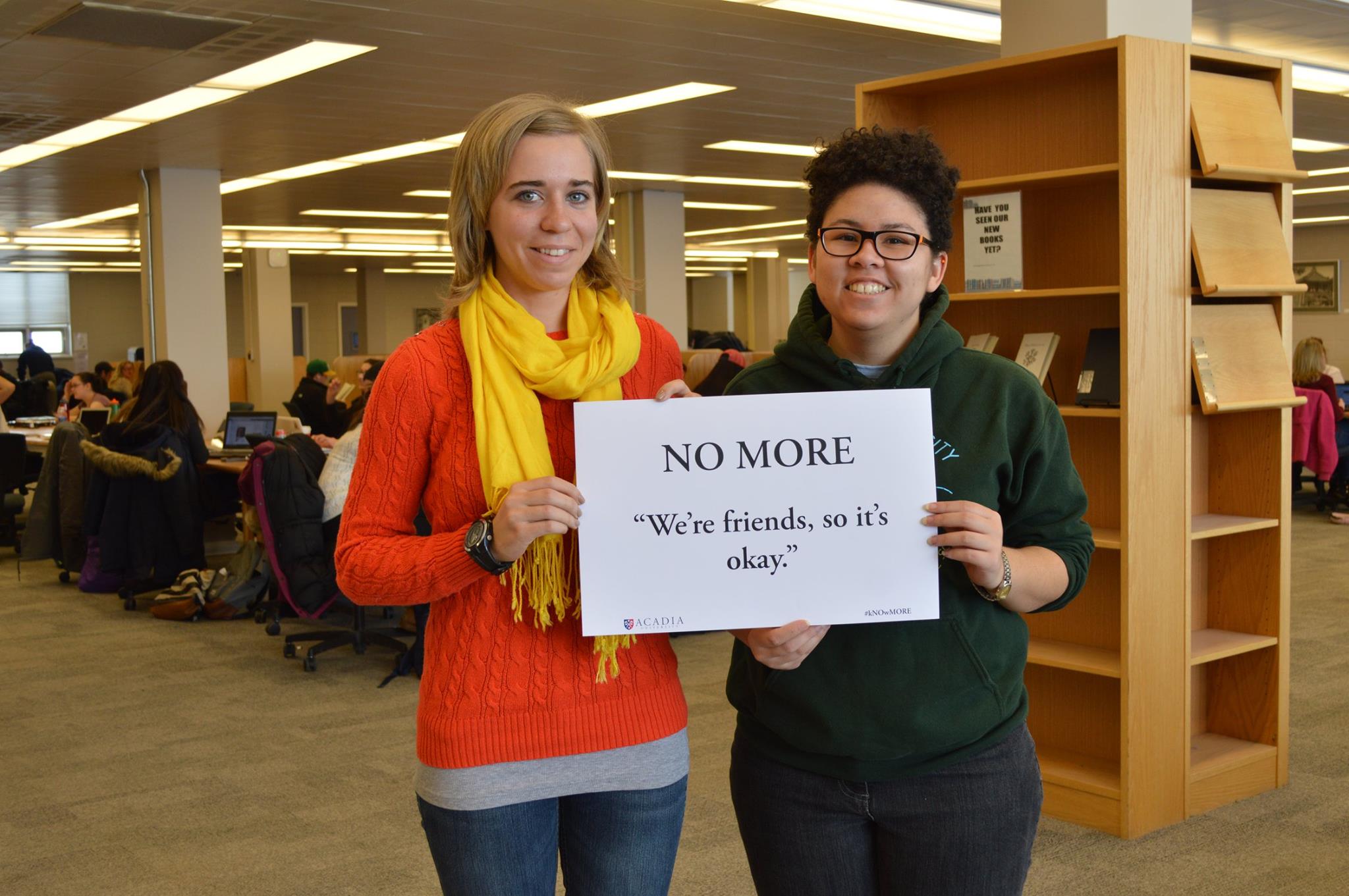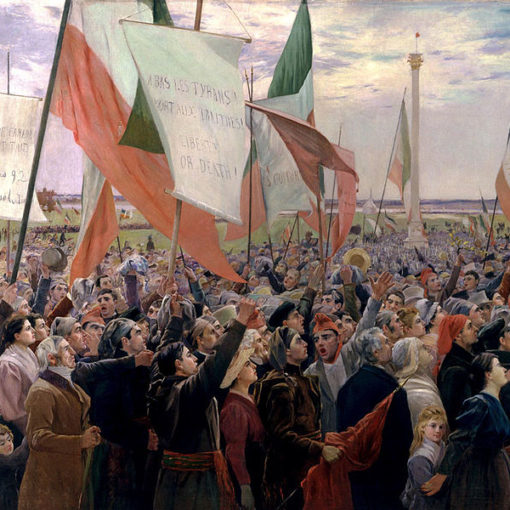Today, September 30th, 2023 marks Canada’s Third National Day for Truth and Reconciliation.
The Athenaeum wishes to call attention to Indigenous voices on this day and ask its readers to engage in a process of reflection surrounding reconciliation.
The June 2021 declaration of the holiday came after the discovery of unmarked burial sites on the grounds of residential schools.
These schools existed to assimilate and erase Indigenous culture and must be seen as cultural genocide. More than 150 000 children were stolen from their families. It is estimated that more than 6000 children died.
Conditions in these schools were both physically and sexually abusive with thousands of children never returning home. Across Canada, there were 139 residential schools in use, in which the last closed in 1998.
National Truth and Reconciliation Day provides an opportunity for Canadians to reflect upon their history and culture. Reconciliation must be done together as a community and it must involve every citizen. Only through respect and meaningful action can we strive for a more equitable society.
The Truth and Reconciliation Commission outlined 94 calls for action that governments, businesses, and people can take they include but are not limited to:
Child Welfare
We call upon the federal, provincial, territorial, and Aboriginal governments to commit to reducing the number of Aboriginal children in care by:
- Monitoring and assessing neglect investigations.
- Providing adequate resources to enable Aboriginal communities and child-welfare organizations to keep Aboriginal families together where it is safe to do so and to keep children in culturally appropriate environments, regardless of where they reside.
Education
- We call upon the Government of Canada to repeal Section 43 of the Criminal Code of Canada.
- We call upon the federal government to develop with Aboriginal groups a joint strategy to eliminate educational and employment gaps between Aboriginal and non-Aboriginal Canadians.
Language and Culture
- We call upon the federal government to acknowledge that Aboriginal rights include Aboriginal language rights.
- We call upon the federal government to enact an Aboriginal Languages Act that incorporates the following principles.
- Aboriginal languages are a fundamental and valued element of Canadian culture and society. There is an urgency to protect them.
- Aboriginal rights are reinforced by Treaties.
- The federal government has a responsibility to provide sufficient funds for Aboriginal language revitalization and preservation.
Health
- We call upon the federal, provincial, territorial, and Aboriginal governments to acknowledge that the current state of Aboriginal health in Canada is a direct result of previous Canadian government policies, including residential schools, and to recognize and implement the health-care rights of Aboriginal people as identified in international law, constitutional law, and under the Treaties.
- We call upon the federal government, in consultation with Aboriginal peoples, to establish measurable goals to identify and close the gaps in health outcomes between Aboriginal and non-Aboriginal communities publish annual progress reports, and assess long-term trends. Such efforts would focus on indicators such as infant mortality, maternal health, suicide, mental health, addictions, life expectancy, birth rates, infant and child health issues, chronic diseases, illness and injury incidence, and the availability of appropriate health services.
Justice
- We call upon the federal, provincial, and territorial governments to recognize as a high priority the need to address and prevent Fetal Alcohol Spectrum Disorder (FASD), and to develop, in collaboration with Aboriginal people, FASD prevention programs that can be delivered in a culturally appropriate manner.
- We call upon the governments of Canada, the provinces, and territories to undertake reforms to the criminal justice system to better address the needs of offenders with Fetal Alcohol Spectrum Disorder (FASD), including:
- Providing increased community resources and powers for courts to ensure that FASD is properly diagnosed and that appropriate community supports are in place for those with FASD.
- Enacting statutory exemptions from mandatory minimum sentences of imprisonment for offenders affected by FASD.
- Providing community, correctional, and parole resources to maximize the ability of people with FASD to live in the community.
- Adopting appropriate evaluation mechanisms to measure the effectiveness of such programs and ensure community safety.
- We call upon the federal government to eliminate barriers to the creation of additional Aboriginal healing lodges within the federal correctional system.
Reconciliation
- We call upon federal, provincial, territorial, and municipal governments to fully adopt and implement the United Nations Declaration on the Rights of Indigenous Peoples as the framework for reconciliation.
- We call upon the Government of Canada to develop a national action plan, strategies, and other concrete measures to achieve the goals of the United Nations Declaration on the Rights of Indigenous Peoples. Royal Proclamation and Covenant of Reconciliation
- We call upon the Government of Canada, on behalf of all Canadians, to jointly develop with Aboriginal peoples a Royal Proclamation of Reconciliation to be issued by the Crown. The proclamation would build on the Royal Proclamation of 1763 and the Treaty of Niagara of 1764, and reaffirm the nation-to-nation relationship between Aboriginal peoples and the Crown. The proclamation would include, but not be limited to, the following commitments:
- Repudiate concepts used to justify European sovereignty over Indigenous lands and peoples such as the Doctrine of Discovery and terra nullius.
- Adopt and implement the United Nations Declaration on the Rights of Indigenous Peoples as the framework for reconciliation.
- Renew or establish Treaty relationships based on principles of mutual recognition, mutual respect, and shared responsibility for maintaining those relationships into the future.
Equity for Aboriginal People in the Legal System
- In keeping with the United Nations Declaration on the Rights of Indigenous Peoples, we call upon the federal government, in collaboration with Aboriginal organizations, to fund the establishment of Indigenous law institutes for the development, use, and understanding of Indigenous laws and access to justice in accordance with the unique cultures of Aboriginal peoples in Canada.
We encourage readers to read the full document which can be found here: https://www2.gov.bc.ca/assets/gov/british-columbians-our-governments/indigenous-people/aboriginal-peoples-documents/calls_to_action_english2.pdf
Today Canadians wear an orange shirt in a show of solidarity.
The Orange Shirt Day is a movement started by Phyllis Webstad from Stswecem’c Xgat’tem First Nation. Forty years ago she arrived on her first day of school wearing a new orange shirt. It was bought by her grandmother for her. It would be stripped from her and confiscated by school staff.
The movement highlights the idea that Every Child Matters and aims to honor those who had their freedom, and culture unjustly ripped from them.
We applaud the efforts of students in the Shubenacadie region. 4 schools in the area created a heart by using hundreds of orange flags. This act offers a healing symbol and raises awareness of what happened at the school. The community approach of learning together and taking meaningful action is a positive step in the right direction.
Although Canada has made progress in the last few years there is still much to do. Treaties have to be honored and respected. The truth of residential schools must never be forgotten. We must empower survivors, Continue to search areas, and we must not stop until every child has been found and honored. Indigenous peoples’ contribution to this country and history must be taught and honored.
We encourage readers to search out Indigenous-made content today and every day.
See the list of links below for further information on Truth and Reconciliation.
Websites:
The National Center for Truth and Reconciliation is a place of learning and dialogue that highlights the truths of Residential School Survivors.
The Government of Canada’s webpage on the Truth and Reconciliation Commission of Canada.
https://www.rcaanc-cirnac.gc.ca/eng/1450124405592/1529106060525
The Indigenous Peoples Atlas of Canada is a collection of Indigenous knowledge from the statements of residential school survivors.
https://indigenouspeoplesatlasofcanada.ca/section/truth-and-reconciliation/
The Assembly of First Nations is an advocacy organization that is mandated by resolutions passed by an Assembly of First Nations people.
https://afn.ca/community-services/education/
Statistics on First Nations youth expenses and outcomes in secondary and postsecondary learning.
https://www150.statcan.gc.ca/n1/pub/81-599-x/81-599-x2023001-eng.htm
Books:
We Were Not the Savages by Daniel N. Paul
Braiding Sweetgrass by Robin Wall Kimmerer
NDN Coping Mechanisms by Billy-Ray Belcourt
A Mind Spread Out On The Ground by Alicia Elliot
Hope Matters by Lee Maracle
21 Things You May Not Know About the Indian Act: Helping Canadians Make Reconciliation with Indigenous Peoples a Reality. By Bob Joseph





